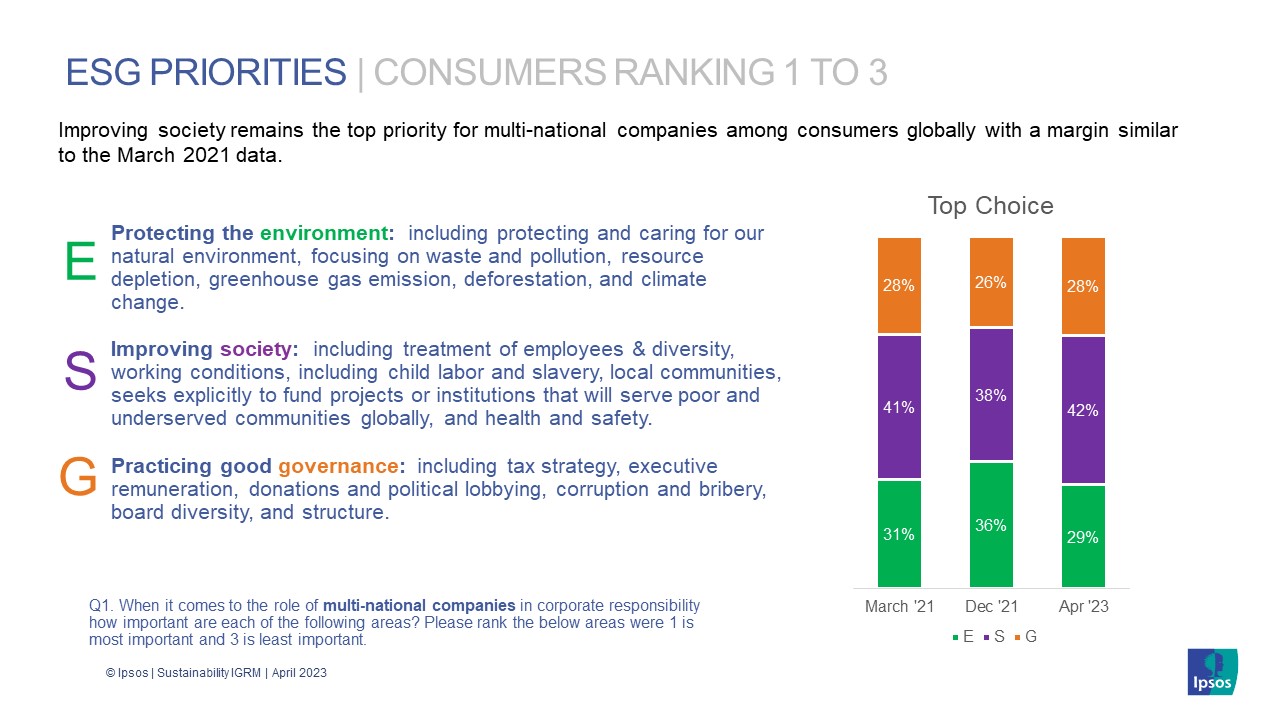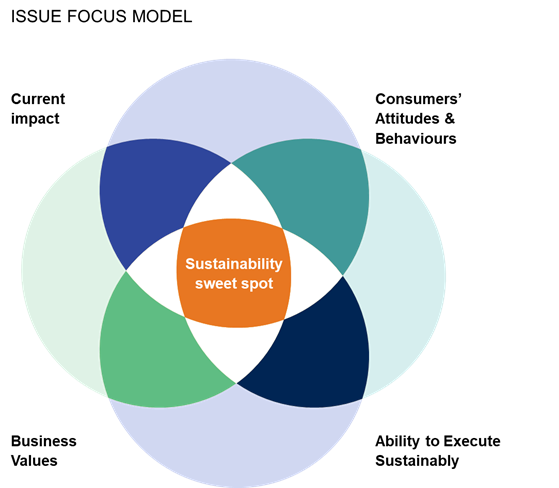ESG – a time for leadership, focus and communication, but above all action
With more than 8 in 10 Reputation Council members agreeing that poor ESG performance now has material consequences, it is hardly surprising that it is increasingly being given a place at the top table within businesses. But to drive real change, strong leadership from the CEO down is needed to ensure ESG is embedded in every function, process, and role. Without this full and earnest commitment, any plan is likely to flounder.
The term ESG was first used at an event in 2005 which addressed a ground-breaking review, led by the International Finance Corporation (IFC) within the World Bank Group, entitled “Who Cares Wins” – later used in the Freshfields Report. The focus being to understand the importance of ESG value drivers in asset management and financial research. The conclusion from the event was that ESG had a key role in longer-term investment. A sentiment strongly reflected through thoughts from the ESG council. But what else can we take from the thoughts of more than 35 CSOs from across the globe?
In financial and company reporting as well as functions within organisations, the individual elements of E, S and G are often treated and talked about in a somewhat siloed approach. However, Ipsos’ wider work with the general public shows that citizens themselves have already recognised the link between the ‘E’ for Environment and the ‘S’ for social – i.e., that our ability to do well and thrive on this planet is wholly dependant on our use of abuse of the natural environment itself3 - best summarised as planetary health. So, care needs to be taken to not treat these as separate factors in business but rather to use the links between them.
And what of ‘G’? If we take the definition of good governance from the United Nations (UN), “the political and institutional processes and outcomes that are necessary to achieve the goals of development”, then surely good and positive governance will ensure the delivery on environmental and social objectives. So, should governance perhaps come first, and we think more GES than ESG or perhaps even GSE given the importance that citizens assign to improving society when they consider the corporate responsibility of multi-national companies? In fact, in the first use of the term ‘ESG’ by the United Nations it was initially proposed that it be called ‘GES’ as Governance was considered central.

It’s clear leadership and good governance are vital, but this will need to be supported by both short- and longer-term plans with clear and detailed steps to illustrate how a business will deliver against these and how progress is measured and monitored. There also needs to be appropriate investment including investment in resource, R&D, new processes, and relevant skills to deliver against any plan.But by creating a commercially viable and purposeful plan, organisations need to identify the sweet spots of where to focus. This can be done logically by identifying the overlap between...
- The impact that the organisation is having from an environmental and social perspective.
- The concerns and importance of issues relevant to all core stakeholders, whilst recognising that for most stakeholders, and customers specifically, environmental and social benefits are expected primarily to be delivered as a co-benefit and not the benefit.
- That focus has been given to what the organisation can deliver (now and in the future).
- The value this will bring to the business, yes financial but also from a reputational point of view, employee engagement, differentiation versus competitors and potential cost savings

A transparent and honest approach to reporting performance against the plan should be a hygiene factor, even with delays or if the direction of emphasis needs to change. The honesty and openness of this detail will engender greater trust with all businesses on an ESG journey where there is no definitive end point.
Linked to this, communication around ESG is an area which is fraught with concerns due to many brands falling foul of greenwashing claims in its many guises. However, the chances of this criticism can be significantly reduced or avoided when positive initiatives being undertaken by a brand are strongly tied into what the brand stands for. This has been illustrated both in advertising1 2, and through customer experience. Making this intuitive link to what a brand represents to customers will drive greater engagement and build brand perceptions and ultimately value.
It shouldn’t be forgotten that employees are also a key stakeholder and potentially the biggest advocate for an organisations ESG initiatives. Research has shown that external ESG communications have a significant impact on employee pride for their organisation. This pride rises from 45 percent for those who have seen internal communications compared to 73 percent for those who have seen both internal and external communications. This indicates how important it is to ensure internal and external communications are well aligned to avoid any potential whistle blowing.
Passionate employees, of which there are many, can also be a great source of energy to raise the bar, taking an organisation further and faster on its ESG journey.
Table of contents
- Introduction: ESG Council Report 2023
- Chief Value Creator?: The changing role of the Chief Sustainability Officer (CSO)
- What is driving change: The role of stakeholder management
- Building an integrated ESG strategy
- Doing well by doing good: Resilience, risk and the reputation value of ESG
- The Future of ESG?
- ESG - a time for leadership, focus and communication, but above all action.
| Previous |
